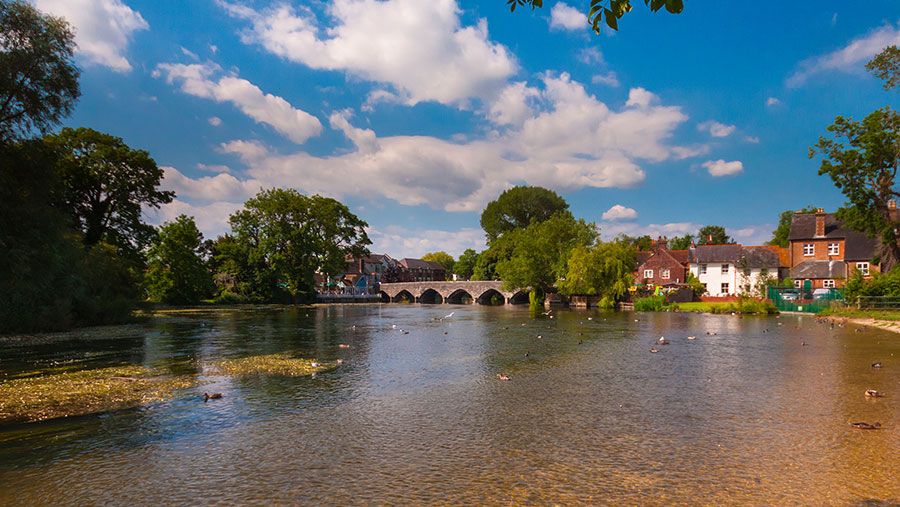New co-op to trade ‘natural capital’ in River Avon catchment
 © Allouphoto/Adobe Stock
© Allouphoto/Adobe Stock A group of farmers in the River Avon catchment in Hampshire have come together to form a new co-operative, designed to trade in various “public goods” for their mutual benefit.
The Environmental Farmers Group (EFG) is launching today (Tuesday, 3 May) with the intention of measuring things such as biodiversity net gain, water quality improvement and carbon capture, and selling them to companies and organisations that may need to buy these “offsets”.
See also: How the ‘Farmer Clusters’ conservation system works
Initially suggested by Game and Wildlife Conservation Trust (GWCT) chief executive Teresa Dent in 2020, the group has so far attracted 80 farmer members, drawn from seven established “clusters” in the catchment, covering about 40,000ha.
“This is a very inspiring development that allows the farmers to drive how they will collectively deliver the environmental goods and services that government and society wants into the future,” said Ms Dent.
Conservation plan
While each cluster already delivers specific environmental benefits, such as reduced levels of nitrates in watercourses and increased numbers of farmland bird species, the EFG and GWCT are developing a conservation plan for the whole group to achieve their various environmental ambitions.
“This includes a lot of water quality improvement work, but also better connectivity of habitats between the various clusters,” said Ms Dent.
Once established, the EFG will then offer the measured gains to businesses such as housebuilders, which are now obliged to demonstrate a 10% biodiversity net gain set against new building developments, or transport companies looking to reduce their carbon footprint.
Water companies are also actively seeking to reward farmers for improving water quality.
‘Natural next step’
Farmer Rob Shepherd, who chairs the new group, as well as the Allenford Farmer Cluster, based near Damerham in Hampshire, sees the EFG as the “natural next step” for the farm cluster model – which was developed by the GWCT, Defra and Natural England about 10 years ago to drive environmental delivery.
“In time, developers and planners will see the EFG as the go-to platform for environmental trades,” he suggested.
“It will offer organisations looking for large-scale environmental trades the advantage of dealing with just one body, rather than lots of individual farmers, and the opportunity to benefit from access to recognised scientific monitoring by the GWCT.”
The actual trades will be put together by the GWCT’s Christopher Sparrow, who sees the sale of public goods to private sector buyers as a great way to help farmers make good the loss of Basic Payment Scheme money, which is being phased out by Defra.
“Natural capital services offer an opportunity to deliver goods which, as farmers, we understand and can present to both the public and private sectors,” he said.
“Operating at scale will assist in achieving good governance, economic strength and physical efficiency.
“We believe this will be critical to attracting and securing customers who share our values and core objective of improving the underlying environmental performance of the Avon catchment.”
For more information visit the EFG website.
How it will work in practice
Farmers who sign up pay a joining fee of £1.25/ha, which will be used to develop the market in biodiversity gain, nitrate and phosphate reduction, and carbon offsetting.
These trades will put businesses with offsetting or enhancement needs in contact with farmers who are best placed to enhance the environment they manage.
As a co-operative, the value of all the trades will be put into one pot, to be divided among all the members, but with greater recognition for the most active participants.
Like with most co-ops, EFG members will only be allowed to trade their natural capital assets through the group.
